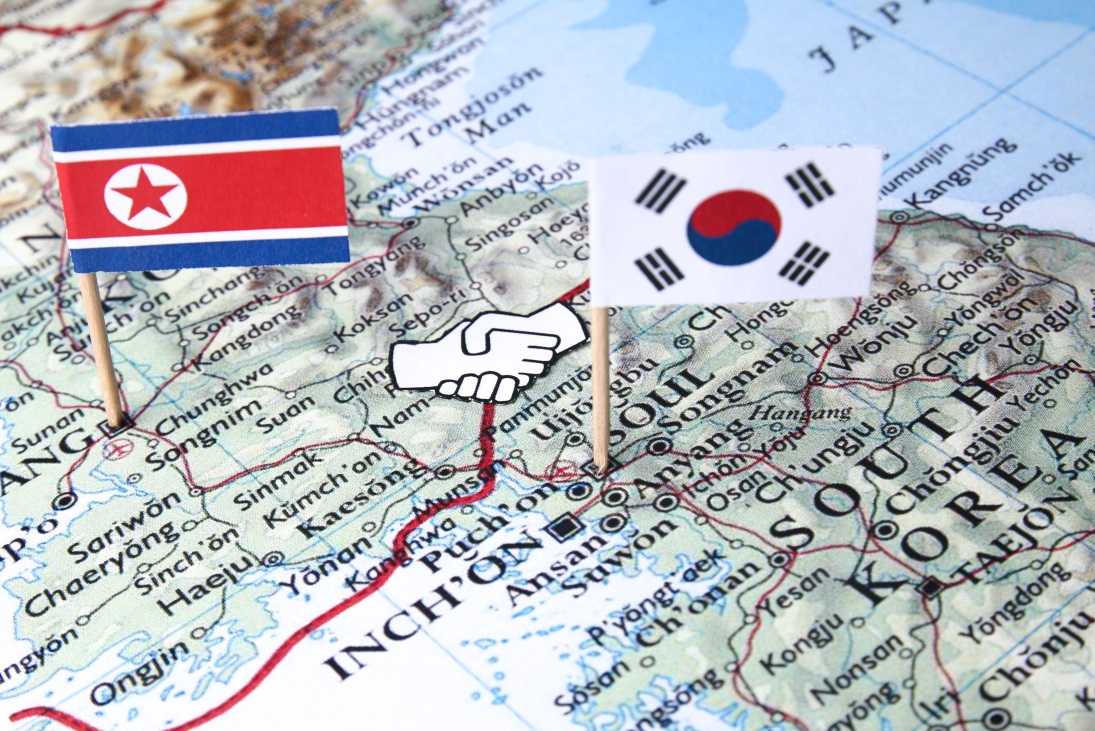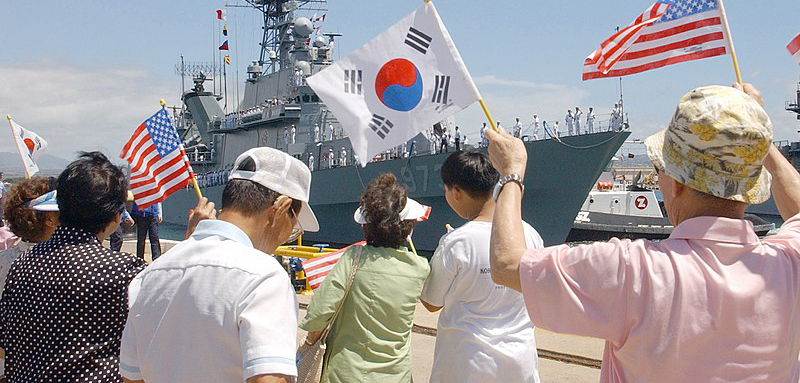
Anticipating the Reunion of Moon and Kim
Commentary | July 06, 2021
Seong-Ho Sheen
Professor and Director of Center for International Security at Graduate School of International Studies at Seoul National University.
Since President Biden took office, we have witnessed higher expectations for the resumption of dialogue between the United States and North Korea, which have discontinued. However, despite the US' willingness to resume dialogue, it is still not easy to open the door for dialogue due to North Korea's cynical attitude. Professor Sheen Seong-ho analyzes that President Moon Jae-in's role as a mediator between the United States and North Korea has once again become important. He states that President Moon and Chairman Kim should meet again to resume U.S.-DPRK dialogue.
February 1519, the silence between the two countries’ administrations has been tediously dragged on. The Biden administration, which took office in January 2021, has maintained a positive attitude toward North Korea. President Biden said that there would be “no grand bargain,” but that he would still pursue dialogue through “a calibrated and pragmatic approach.” Then, at the ROK-U.S. Summit in May, he declared that his policy and diplomacy toward North Korea would be based on previous inter-Korean and U.S.-DPRK commitments such as the 2018 Panmunjom Declaration (April 1518) and the Singapore Joint Statement (June 2018). At the joint press conference, President Biden's will to resume dialogue with North Korea seemed apparent as he introduced and applauded Ambassador Sung Kim, who had assisted the organization of U.S.-DPRK negotiations under the Trump administration, as the new U.S. special representative for North Korea.
U.S. Willingness to Resume Dialogue and North Korea’s Cynical Attitude
However, North Korea still takes a cynical stance. At the plenary meeting of the Central Committee of the Workers’ Party of Korea in mid-June, North Korea's Chairman Kim Jong-un, who recently acknowledged the significant crisis caused by COVID-19, emphasized an independent line but ordered his administration "to prepare for both confrontation and dialogue" in future relations with the U.S. However, in regards to the remarks made by the U.S. National Security Advisor Jake Sullivan (June 15, 2021), in which he stated that he regarded Chairman Kim's comments as "an interesting signal", Kim Yo Jong, the Deputy Director of the Publicity and Information Department of North Korea, immediately said, "There is a Korean proverb that says how you interpret a dream is more important than the dream itself (It seems that the U.S. may interpret the situation in a way that is favorable to them)". She continued to warn that “their [the U.S.’] unlikely expectation would plunge them into greater disappointment.” (June 22).
Perhaps the no-deal summit in Hanoi, for which the dignified Supreme Leader traveled thousands of miles via train in anticipation of a significant deal with President Trump only to return with empty hands, remains as a trauma never to be repeated to North Korean officials Additionally, North Korea has been even more skeptical of negotiations with the Biden administration, which has criticized Trump's diplomacy with North Korea. However, it is impossible for Chairman Kim to build the economy he strives for without the lifting of sanctions that have primarily been imposed by the U.S.. Chairman Kim, who shed tears while talking about the suffering of his people at a military parade in October last year, has no choice but to engage in dialogue with the U.S. for this very reason.
However, initiating conversation is not easy for either side. In particular, it will be very difficult for North Korea to pin their hopes and trust on dialogue with the new Biden administration, which has been the antithesis of that of President Trump. It is difficult for North Korea to ask China or Russia to mediate as well, as the Biden administration has taken an even more confrontational angle with both countries, leaving the North to use South Korea once again to connect with Biden.
The reasons why it is beneficial for North Korea to resume dialogue with the South Korean government are as follows.
First, the Biden government trusts the South Korean government. In May, President Biden held his second offline summitwith South Korean President Moon Jae-in; Biden’s first offline summit had taken place in April with the Japanese Prime Minister Suga. It is notable that, the Biden administration put aside most of its NATO allies as well as neighboring countries such as Canada and Mexico for his first rounds of offline summits with foreign leaders. Instead, he invited South Korea for his second offline summit, which was preceded by Japan. Moreover, the ROK-U.S. summit was evaluated as more meaningful in both form and content than the U.S.-Japan summit, which further attests to the level of trust between the two administrations.
Second, neither the North Korean nuclear issue nor a U.S.-DPRK summit are high on the priority list for foreign affairs for the Biden government. This is a crucial difference between the Biden administration and its predecessor, as Trump had made his summit with North Korea one of the most important items in his agenda during his tenure. The Biden administration lies in a difficult situation, in which it has to focus on internal issues, such as responding to COVID-19, large-scale economic recovery, recent racial and social conflicts, and investments in infrastructure. This is parallel to the desperate situation of the Kim Jong-un regime, which is suffering from three central problems: the COVID-19 pandemic, the economic crisis caused by border closures, and the food crisis caused by natural disasters. Moreover, the Biden administration has been facing urgent diplomatic issues such as U.S. withdrawal from Afghanistan, the restoration of alliances including NATO, the establishment of relations with Russia, the recent Israeli-Palestinian conflict, as well as nuclear negotiations with Iran. Undeniably, establishing a new relationship with China, which would include issues such as trade, human rights, and climate change, will undoubtedly be Biden's most important diplomatic agenda in the medium to long term. Even if North Korea desires to resume dialogue with the U.S., the regime doesn’t have much to entice Biden to focus on negotiations with North Korea.
Third, the recent G7 summit confirmed South Korea's status in the global context. Although North Korea describes itself as the world's ninth nuclear power, this gathering proves that South Korea has joined the ranks of the world's top 10 powers in terms of overall national power. Even though South Korea was invited to the meeting as a guest, all member countries except Japan paid respect to and showed admiration for Korea's COVID-19 control as well as its advanced economy and technology. If North Korea smoothly proceeds denuclearization negotiations with the U.S., it is expected that various economic sanctions would be lifted, enabling North Korea to develop its economy in earnest. South Korea, which is geographically, racially, and linguistically closest to North Korea, will continue to play the most important role in this process. In the meantime, South Korea's support and know-how will provide effective help to North Korea in its fight against COVID-19, which is currently the most difficult issue facing North Korea.
Fourth, the Korean presidential election is near; there are certain political factors regarding President Moon's administration that make it more advantageous for North Korea to pursue dialogue now. In advance of the presidential election in May 1522, the rivalry between the ruling party and opposition parties and their candidates has been escalating. Usually, a government that has less than one year left in office experiences a lame-duck phenomenon. However, President Moon has maintained an unusually high and stable approval rating, despite nearing the end of his term. Currently, in various opinion polls, President Moon's approval rating has rebounded from a previous decline to reach approximately 40%. Moreover, compared to the approval ratings of former presidents with less than one year left in office, Moon’s rating is exceptionally stable. For example, when former President Roh Moo-hyun held the 10.4 Inter-Korean Summit with Chairman Kim Jong-il at the end of his term in 1507 ahead of the December presidential election, he experienced an extreme lame-duck phenomenon with an approval rating in the low 15% range. President Moon said in a recent interview with Time that he did not have much time left, but added that "President Biden supports inter-Korean dialogue, reconciliation, and cooperation."
President Moon Assumes an Important Role in the Resumption of U.S.-DPRK Dialogue
President Biden accepted President Moon's proposal and recognized the Singapore Agreement between President Trump and Chairman Kim as part of U.S. policy toward North Korea. Biden hinted that he could meet with Kim if the conditions for denuclearization were met. Going forward, President Moon may once again play an important intermediary role in solving the dilemma between the Biden administration, which prioritizes working-level contact, and North Korea, which prefers top-down negotiations. This explains why President Moon, who has emerged as one of President Biden's most trusted partners, and Chairman Kim must meet again to resume U.S.-DPRK dialogue. ■
■ Seong-Ho Sheen is professor and director of Center for International Security at Graduate School of International Studies at Seoul National University. He advised various government organizations including ROK National Ministry of Defense, Ministry of Foreign Affairs, Ministry of Unification and Committee on Foreign Affairs and Unification, the ROK National Assembly.
■ Typeset by Kwang-min Pyo Senior Researcher
For inquiries: 02 2277 1683 (ext. 153) | ppiokm@eai.or.kr
Politics / International Relations

The Significance of Kim Jong Un’s Non-Physical Cultural Heritage Policy Reviews
Young-Sun Jeon | 17.June.2021

Prospects of Resuming U.S.-North Korean Dialogue on North Korea’s Nuclear Weapons Program After the ROK-U.S. Summit
Chaesung Chun | 01.June.2021
Consistent Inconsistency: What One Thirty-year-old Cable Reveals About U.S.-DPRK Relations
Ben Forney | 03.May.2021
LIST